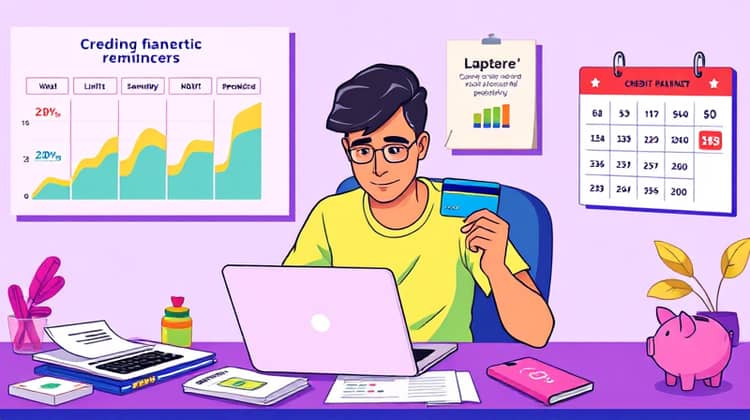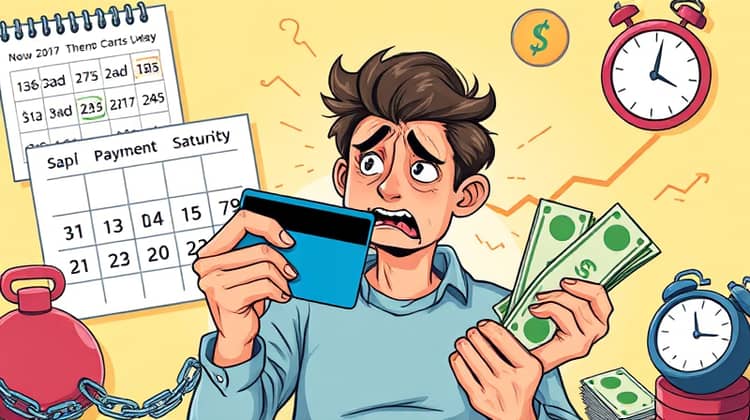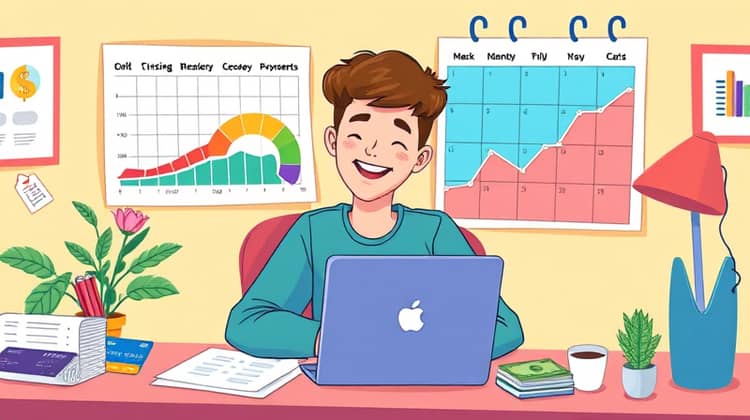Smart Spending: How to Use Your Credit Card Responsibly

Credit cards can be powerful financial tools that, when used wisely, can help you manage your expenses, build credit, and earn rewards. However, irresponsible use can lead to debt and financial strain. That's why understanding how to use your credit card takes on paramount importance in today's credit-driven society.
In this comprehensive guide, we will look at the importance of credit card responsibility, tips for using your credit card wisely, common credit card mistakes to avoid, and how you can build and improve your credit score through smart credit card usage.
Why Credit Card Responsibility Matters

Using a credit card is not just about spending money; it is about managing your financial future. Poor credit card habits can lead to financial setbacks, affecting everything from buying a home to getting a job. Developing good credit card practices will benefit you in the long run.
Being responsible includes understanding how much you can afford to spend and the impact of your payment history on your credit score. Establishing a positive credit history is essential for securing loans and credit in the future.
- Improved Credit Score
- Better Loan Options
- Access to Higher Credit Limits
- Rewards and Cashback Opportunities
Overall, being responsible with your credit card will not only enhance your financial well-being but also give you more options as you make significant purchases throughout life.
Tips for Using Credit Cards Responsibly

1. Know Your Limits
Understanding your credit limit is crucial. Your limit is the maximum amount of credit you can use at any time, and going over it can lead to fees or declined transactions.
To maximize your financial health, set a personal spending limit that is lower than your credit limit. This approach helps you avoid overspending and accumulating debt.
- Review your credit limit regularly
- Keep track of your spending
- Avoid temptation to spend up to your limit
This strategy promotes a healthy credit utilization ratio, essential for maintaining a good credit score.
2. Pay Off Your Balance Every Month
One of the best habits you can cultivate is to pay off your credit card balance in full each month. This habit helps you avoid interest charges and debt accumulation.
If you find yourself unable to pay the full amount, try to at least pay more than the minimum required payment, as this can help reduce your debt faster. They can save you money on interest and keep you from falling deeper into financial distress.
- Set reminders for payment due dates
- Review your budget to allocate funds for credit payments
- Use automatic payments as a safeguard
Staying on top of your payments will not only keep your balance in check but also bolster your credit score.
3. Understand the Interest Rates
Interest rates are a crucial part of credit card management. They indicate how much you will pay in interest if you carry a balance.
Always be aware of your card's APR (annual percentage rate), as understanding it can help you make better financial decisions.
- Check your cardholder agreement for the APR
- Consider transferring balances to cards with lower rates
- Use calculators to understand interest accrual
By remaining informed, you prevent being caught off guard by high-interest fees.
4. Use Rewards Wisely
Many credit cards offer rewards, such as points, miles, or cashback for every dollar spent. Taking advantage of these offers can be an excellent way to save or earn benefits.
However, it’s crucial to remember that spending solely to accumulate rewards can lead to debt. Instead, focus on using your rewards systematically to maximize their value.
- Choose a rewards card that fits your spending habits
- Redeem rewards regularly to avoid expiration
- Avoid overspending to achieve reward points
Implementing these strategies will ensure that you enjoy the benefits of rewards without falling into debt.
5. Avoid Cash Advances
While many credit cards allow for cash advances, this option should generally be avoided. Cash advances often come with high fees and steep interest rates that can quickly add up.
Using cash advances also negatively impacts your credit score by increasing your overall credit utilization.
- Understand the costs associated with cash advances
- Limit the use of payment methods that offer cash advances
- Consider alternatives like personal loans for emergencies
This way, you can safeguard your finances and protect your creditworthiness.
6. Keep Track of Your Spending
Tracking your spending is a proactive way to manage your finances effectively. Many apps and tools can help you keep an eye on your expenditure and ensure you stay within your budget.
Regular monitoring helps prevent overspending and allows you to identify patterns in your spending behavior.
- Set a monthly budget for credit card expenses
- Use budgeting apps to track transactions
- Review your statements for discrepancies
In turn, consistent monitoring helps to maintain a healthy financial life.
Avoiding Common Credit Card Mistakes

1. Carrying a Balance
One of the most common mistakes is carrying a balance month to month. When you do this, you accumulate interest, leading to a larger debt over time.
Many consumers believe they can manage their credit this way, but it can spiral out of control quickly, impacting your financial future negatively.
- Aim to pay off your total balance each month
- Target high-interest cards first if you have multiple
- Consider personal finance strategies to get out of debt
Avoiding this mistake can significantly improve your financial stability.
2. Missing Payments
Missing credit card payments can be a financial downfall, resulting in late fees and a lower credit score. Establishing a consistent payment schedule is crucial.
When payments are missed, a vicious cycle can occur, leading to further financial burdens and stress.
- Set calendar alerts for payment due dates
- Consider automatic payments as a safety net
- Review your bank account to ensure funds are available
Paying on time is a simple yet effective way to maintain a good credit score.
3. Ignoring Fees
Many credit cards come with various fees, including annual fees, foreign transaction fees, and late payment fees. Ignoring these can lead to unnecessary expenses.
By being aware of the fees associated with your card, you can make more informed decisions regarding its usage.
- Read the fine print when signing up for credit cards
- Review statements for unexpected charges
- Check for offers that waive fees in specific situations
Being informed about fees can help protect your financial interests.
4. Opening Too Many Cards
While it can be tempting to open multiple credit card accounts to take advantage of different rewards, doing so can be detrimental to your credit score.
Each application for a new card can subtract a few points from your credit score, and having too many cards can make you look risky to lenders.
5. Closing Cards Abruptly
Closing a credit card account can seem straightforward but may negatively impact your credit score. It reduces your overall credit limit, which can increase your credit utilization ratio.
Instead, consider keeping the account open, but not using it frequently, to maintain a healthy credit score.
Building Credit with Your Credit Card

Building a credit history is vital for your financial future, and using a credit card responsibly is one of the best ways to achieve this. Regular, on-time payments and minimal credit usage can solidify a positive credit record.
Over time, consistent and responsible card usage will lead to an improved credit score, giving you access to lower interest rates and better loan options in the future.
Conclusion

In conclusion, using a credit card responsibly involves understanding your financial limits, tracking your spending, and being aware of the terms associated with your card. Responsible credit use can lead to greater financial opportunities and security, whereas poor habits can result in long-term financial repercussions.






